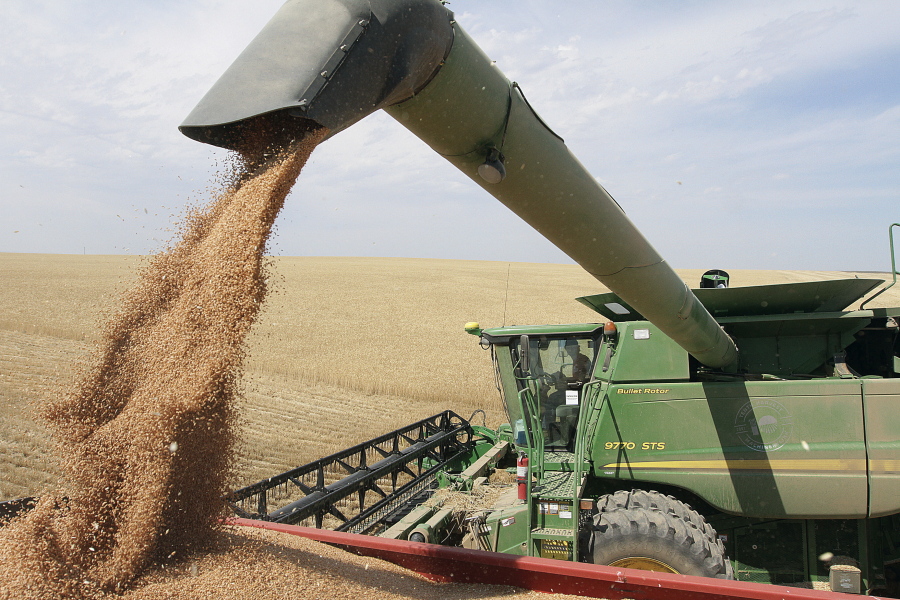SPOKANE — The trade war with China is making life difficult for many farmers across Washington.
The state’s 1,900 wheat growers, who export the vast majority of their crop, are particularly hurt. But so are cherry growers who just harvested their highly perishable crop.
Washington stands to lose $480 million in agricultural exports to China because of retaliatory tariffs, according to the state Department of Agriculture.
Mike Carstensen, a wheat grower whose farm is near Grand Coulee Dam, said that last year China was the No. 4 customer for his wheat.
“To date they have bought zero,” Carstensen said of this year’s crop.
Gary Bailey, a wheat farmer near the Washington-Idaho state border, said he hasn’t sold any wheat to China since March.
“I hope it doesn’t last too long,” Bailey said of the trade war. “We’ve developed relationships with these countries and as we go along, they will be replacing our wheat with someone else’s. We want to keep those relationships strong and healthy.”
President Trump has raised duties on billions of dollars’ worth of Chinese imports, and China retaliated with similar penalties. Chinese leaders have tried to cushion the blow to their own economy by targeting U.S. goods its importers can get from other countries.
Mike Miller, a wheat farmer outside of Ritzville, about 60 miles west of Spokane, thinks the trade war has had minimal impacts on global wheat prices so far.
“Other conditions in the world wheat market have caused a bump upward in prices that are not related to our own international trade policies,” Miller said.
Poor wheat crops in Australia and Europe have prices “on a little upward swing,” he said.
More than 90 percent of the $600 million wheat crop in Washington is exported to other countries each year.
Miller said farmers are eternal optimists who understand the federal government is seeking better trade conditions with China.
“I just wish agriculture wasn’t being singled out in this retaliatory climate,” Miller said.
“Our biggest concern is that we’ve spent 50 or 60 years developing markets, and if we lose them then you don’t turn the switch and come back on,” Miller said. “The uncertainty of how long it takes to earn back market share concerns me the most.”
Meanwhile, the 2,500 cherry growers in the state say they will lose some $86 million this season because of retaliatory tariffs by China.
That figure was calculated by the Northwest Horticultural Council, which covers trade issues.
China was the largest importer of Northwest cherries last year. But the country placed a 50 percent tariff on cherries after President Trump placed tariffs on some Chinese products.
Cherries are highly perishable and must be eaten shortly after they are harvested. The 2018 season has already ended for Washington growers.
Washington’s two U.S. senators and two U.S. House members who represent cherry country recently sent a letter to the U.S. Department of Agriculture asking for financial relief to cherry growers. The letter was signed by Sens. Patty Murray and Maria Cantwell, both Democrats, and Reps. Dan Newhouse and Dave Reichert, both Republicans.



